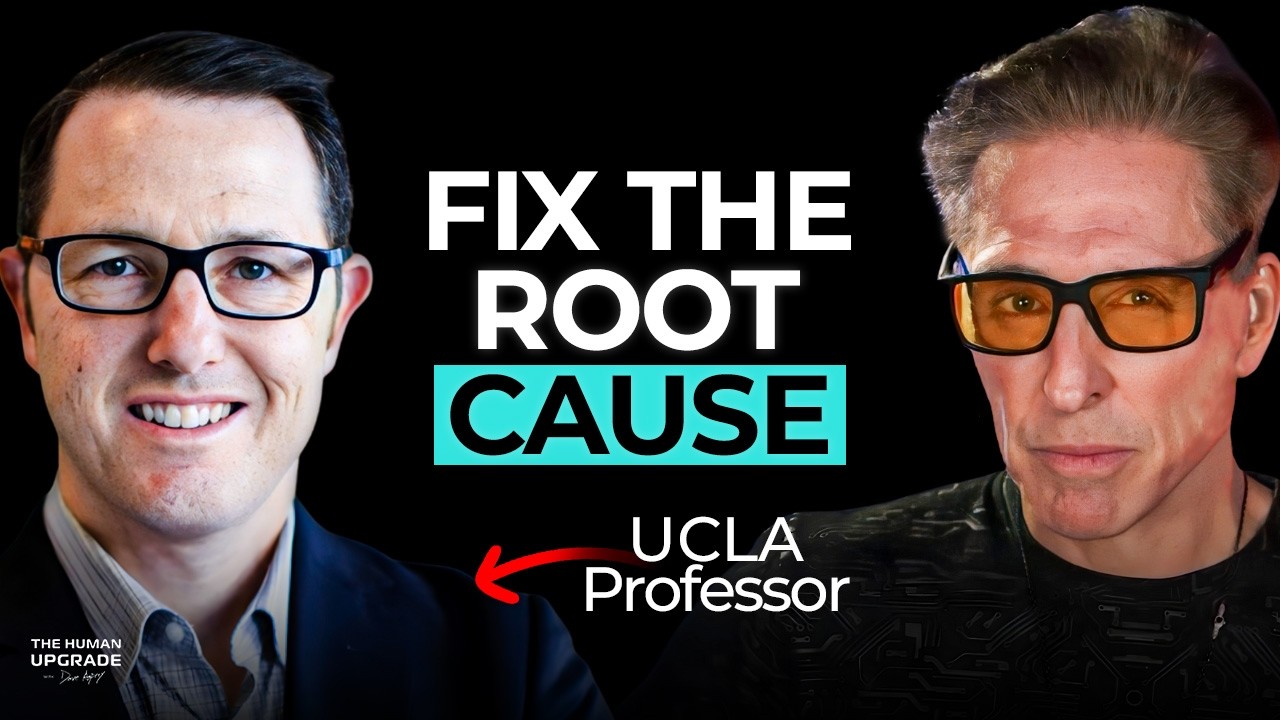- The relationship between gravity and mental health
- How physical health influences mood
- The role of nutrition in mental well-being
- The impact of metabolic processes on emotional states
- The significance of lifestyle choices in managing depression
The influence of gravity on our bodies extends far beyond mere mechanics. It holds the potential to affect mental health in ways that may not be immediately evident. While gravity acts as an invisible force, our brains and bodies constantly react to its effects, shaping how we feel. Researchers are beginning to identify connections between gravity, physiological health, and emotional states, culminating in questions about whether gravity could contribute to feelings of depression.
The intricate ties between physical health and mood swings are well-established. One’s overall well-being can significantly affect emotional health, with studies illustrating that individuals with chronic conditions often experience more depressive symptoms. When the body is in a state of stress—whether due to environmental factors, illness, or nutritional deficits—this stress can cascade into mental turmoil. The body’s response to gravity, physical exertion, and even stillness can amplify feelings of fatigue and depletion.
Gravity, being a constant force in our lives, can impact physical movement and overall vitality. When individuals experience reduced mobility, such as during prolonged bed rest or sedentary lifestyles, their mental health may also take a hit. This connection manifests via hormonal changes, including shifts in cortisol and serotonin levels. Both hormones are crucial for maintaining mood balance. Heightened cortisol levels, often a response to chronic stress, may lead to feelings of anxiety or depression. Conversely, serotonin is frequently dubbed the ‘feel-good hormone.’ When mobility is restricted, serotonin levels can decline, contributing to feelings of sadness and hopelessness.
Nutrition plays a fundamental role in mental health management. The nutrients in food directly influence our brain chemistry. Amino acids, for example, are the building blocks of neurotransmitters that impact mood. Without sufficient intake of these nutrients, brain function can suffer. A diet rich in fatty acids, vitamins, and minerals supports neuronal health and can protect against emotional disturbances. Foods high in omega-3 fatty acids, such as fatty fish, nuts, and flaxseeds, have been associated with lower rates of depression. Likewise, micronutrients like zinc and vitamin D also have positive correlations with mood stabilization and emotional resilience.
However, modern dietary habits often lean toward convenience and processed foods, which may lack essential nutrients. Chronic consumption of high-sugar and high-fat foods can lead to impaired insulin sensitivity. Insulin plays a crucial role in metabolic processes; when it functions poorly, it can result in weight gain and increased body fat. These physical changes can further exacerbate feelings of self-doubt and despair. The intersection of metabolic health and mood is critical. Studies show that insulin sensitivity is not only essential for physical health but also vital for maintaining emotional balance. Maintaining steady blood sugar levels through a balanced diet can combat mood swings and fatigue.
The relationship between metabolic processes and emotional states is intricate. Insulin is key to glucose regulation in the bloodstream. When these levels are inconsistent, fatigue can follow. This fatigue often becomes correlated with depressive symptoms. Research suggests that glucose levels significantly affect cognitive performance, affecting focus and mood. Additionally, metabolic syndrome—a cluster of conditions including obesity, high blood pressure, and abnormal cholesterol levels—has been linked to higher instances of depression and anxiety.
Addressing mental health calls for a multi-faceted approach, where lifestyle choices play a crucial role. Regular physical activity, for instance, can be a powerful antidote to feelings of depression. Exercise promotes the release of endorphins, often dubbed the ‘hormones of happiness’. This natural mood lifter can help counteract the depressive effects potentially linked to gravitational stressors. Moreover, maintaining an active lifestyle can mitigate some of the negative effects of gravity on physical health, reducing the sense of fatigue and enhancing emotional resilience.
Sleep, too, is tightly woven into the fabric of mental well-being. Gravity affects sleep quality, and the body needs restorative rest to manage stress and mood. Poor sleep can have a compounding effect on emotional health. Individuals commonly exhibit increased irritability and anxiety when deprived of adequate rest. Activities that promote better sleep hygiene, such as maintaining a consistent sleep schedule, creating a relaxing bedtime routine, and minimizing exposure to screens before sleep, can significantly improve mood and emotional well-being.
Understanding the vast array of factors contributing to feelings of depression may go a long way in addressing this common issue. Highlighting the influence of gravity, nutrition, metabolic health, and lifestyle choices allows for a holistic approach to mental wellness. While gravity is a constant, the way we respond to its impacts can be altered through diet, exercise, and lifestyle strategies.
The topic of gravity’s influence, particularly when paired with nutritional science and metabolic health, offers rich avenues for personal exploration and empowerment. Looking deeper into how gravity interplays with physical and mental health might inspire individuals to reassess their habits. Food choices that bolster mental health, coupled with exercise regimens adapted to individual capabilities, can trigger profound changes in well-being.
Continued research is crucial to understanding the connections between environmental factors like gravity and mental health. As our knowledge expands, so too will the strategies available for addressing mental health concerns. By maintaining an awareness of the multifaceted nature of depression and recognizing its ties to gravity, nutrition, and metabolic processes, individuals can build more effective coping mechanisms. Knowledge empowers individuals to take actionable steps toward better health and happiness.
As this field evolves, it is essential to stay informed and adopt practices that enhance overall wellness. Embracing a proactive approach toward mental health may involve not only dietary changes but also physical activity, stress management techniques, and community support. The ripple effects of these changes can cultivate a sense of agency in handling one’s emotional landscape. Whether one’s struggles with depression relate to gravitational challenges or nutritional deficiencies, paths to improvement are available through informed choices and lifestyle adjustments.
*****
Source Description
Gravity may be the most ignored signal in human biology, and it could be the missing key to unlocking fat loss, brain optimization, and true longevity. In this episode, you’ll learn how Earth’s pull shapes your metabolism, mood, and resilience, and discover practical hacks to fight “gravity intolerance” so you can perform better, live longer, and upgrade every system in your body.
Listen to the FULL-LENGTH version of this episode on your favorite audio platform:
-Apple: https://podcasts.apple.com/us/podcast/the-human-upgrade-biohacking-for-longevity-performance/id451295014
-Spotify: https://open.spotify.com/show/2mkB9OoukPVKCTKSuAIgCq
Host Dave Asprey sits down with Dr. Brennan Spiegel, a Professor of Medicine and Public Health at UCLA, Director of Health Services Research at Cedars-Sinai, and author of Pull: How Gravity Shapes Your Body, Steadies the Mind, and Guides Our Health. A leading voice in digital health and immersive medicine, Dr. Spiegel brings decades of clinical and research experience exploring the intersection of the gut-brain axis, neuropsychology, and mind-body medicine. In this episode, he reveals why gravity influences everything from gut health to depression — and why modern medicine has largely ignored its role. His work bridges functional medicine, neuroscience, and biohacking to uncover a hidden force that shapes human performance at every level.
You’ll Learn:
• Why gravity is the most ignored biohacking signal in human health
• How gravity intolerance shows up as back pain, fatigue, obesity, and depression
• The surprising connection between gravity, serotonin, and mood regulation
• How weighted vests, balance boards, and proprioception training hack graviception
• Why sleep optimization, posture, and fascia resilience are gravity-based health tools
• How Earth’s pull influences gut health, metabolism, and even consciousness
You’ll learn how gravity connects to obesity, back pain, blood pressure, serotonin, and even consciousness. Dave and Dr. Spiegel explore how weighted vests, balance boards, vibration, and sleep optimization can hack your body’s response to gravity.
This channel dives into mitochondria, neuroplasticity, fasting, ketosis, supplements, and how biohackers can apply these insights alongside tools like cold therapy, nootropics, and even Danger Coffee to build resilience and extend longevity.
Dave Asprey is a four-time New York Times bestselling author, founder of Bulletproof Coffee, and the father of biohacking. With over 1,000 interviews and 1 million monthly listeners, The Human Upgrade brings you the knowledge to take control of your biology, extend your longevity, and optimize every system in your body and mind. Each episode delivers cutting-edge insights in health, performance, neuroscience, supplements, nutrition, biohacking, emotional intelligence, and conscious living.
New episodes are released every Tuesday, Thursday, Friday (audio-only), and Sunday (BONUS). Dave asks the questions no one else will and gives you real tools to become stronger, smarter, and more resilient.
Timestamps:
0:00 — Trailer
1:30 — Introduction to Gravity
2:52 — Gravity’s Role in Human Evolution
3:58 — Gravity and Medicine
5:39 — Consciousness, Perception, and Gravity
7:11 — Recognizing Gravity Intolerance
8:29 — Building Gravity Resilience
12:09 — Gravity in Space and Air Travel
14:45 — Practical Tips for Managing Gravity During Travel
18:11 — Gravity and the Gut
22:41 — Footwear to Hack Gravity
26:35 — Gravity’s Impact on Gut Health
29:34 — Gravity and the Vagus Nerve
31:26 — Piezoelectricity and Gravity
33:10 — Obesity, Depression, and Gravity Intolerance
34:47 — Anxiety and Gravity
35:58 — Outro
Connect with Dave Asprey!
Website: https://daveasprey.com
TikTok: https://www.tiktok.com/@daveaspreyofficial
Instagram: https://www.instagram.com/dave.asprey/
Facebook: https://www.facebook.com/Daveaspreyofficial/
X: https://x.com/daveasprey
YouTube: https://www.youtube.com/c/daveaspreybpr
The Human Upgrade Podcast: https://www.instagram.com/TheHumanUpgradePodcast/ https://m.facebook.com/Thehumanupgrade/
Danger Coffee: https://dangercoffee.com/DAVE15
Dave Asprey’s BEYOND Conference: https://beyondconference.com/
Dave Asprey’s New Book – Heavily Meditated: https://daveasprey.com/heavily-meditated/
Dave’s favorite supplements: https://www.shopsuppgradelabs.com/discount/DAVE15
Upgrade Collective: https://www.ourupgradecollective.com
Upgrade Labs: https://upgradelabs.com
40 Years of Zen: https://40yearsofzen.com


